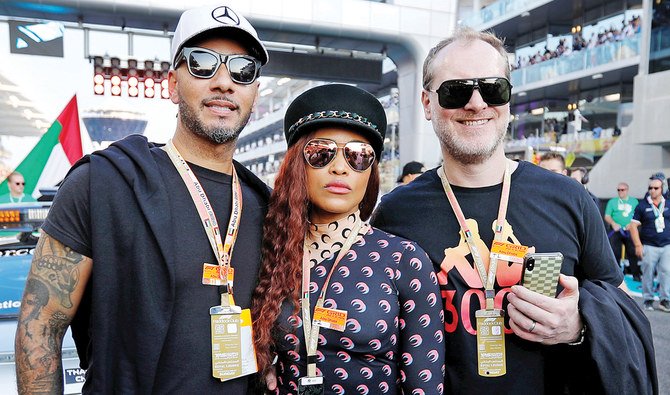
- ARAB NEWS
- 01 Jul 2025

Sean Cronin, London
A 4 a.m. phone call rarely brings good news — as Flash Entertainment CEO John Lickrish discovered, just days before Travis Scott was due to perform at the Abu Dhabi F1 concerts. The call was from the rapper’s management team to say that he was not going to be traveling to the UAE, for reasons that Lickrish declines to disclose.
It was a very early start to a very bad day at the office for the Canadian who has worked for the Abu Dhabi government-owned entertainment company since its inception 10 years ago.
A flurry of calls ensued to arrange the almost impossible task of finding alternative artists to headline an event that in the past has included the likes of Paul McCartney, Rihanna and Eminem. It paid off, and fellow Atlanta-based rappers Future and Gucci Mane were able to step in at incredibly short notice to play on the opening night of the three-day festival which ended on Sunday.
“We understand his decision. He just couldn’t make it. For an artist of that caliber to cancel a show, they don’t take these things lightly,” he said. “When you get a cancelation that close, it’s heartbreaking and of course it’s complicated. So we’re all running a bit ragged.”
Speaking to Arab News on the eve of last weekend’s opening night, Lickrish sounds surprisingly sanguine for a man who only a few days earlier was staring at a Travis Scott-shaped hole in his F1 lineup.
But with the F1 shows now over for another year, the Flash boss is already looking ahead and busy preparing the ground for the arrival of the company in Saudi Arabia, which he sees as an important step in creating a regional touring scene to attract the world’s biggest artists.
The opening up of Saudi Arabia’s entertainment sector is drawing interest from international promoters who are especially attracted by the Kingdom’s youthful demographics. At the same time, the country is playing host to increasingly high-profile sports events such as next weekend’s much-anticipated rematch between Anthony Joshua and Andy Ruiz Jr., with three versions of the world heavyweight title at stake.
But unlike one-off sporting events, attracting top artists can present more challenges for promoters in the Middle East, which is why establishing a regional touring scene is so important.
“It’s much more economically viable for the artist,” Lickrish said. “To take four or five days out of your touring schedule to do one show is quite taxing on the overhead and the cost so if you can say ‘let’s do Riyadh, Jeddah and Dammam’ — that right there will attract attention and give us more opportunities and economies of scale. It’s very important for the region that we have this touring element that can bring us multiple shows.”
While Flash has already promoted a few events in the Kingdom, it has not yet established a dedicated presence. That could soon change as Saudi Arabia looks to attract more visitors and invests heavily in the entertainment sector.
“We believe there’s a great opportunity. When we come to Saudi we want to be there on a 10-year plan,” he said. “We don’t want to just come for the boom and take advantage of the situation, we want to establish a presence so we can bring more content into the region and we believe the Saudi market will support that. Hopefully that’s going to be happening sooner rather later. We are going through the legal process now and we want to hit the ground running.”